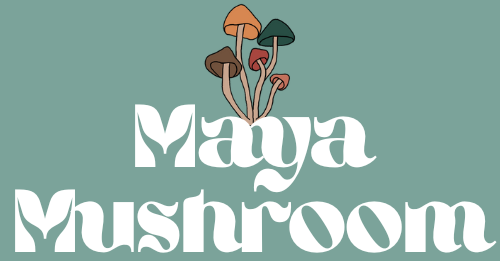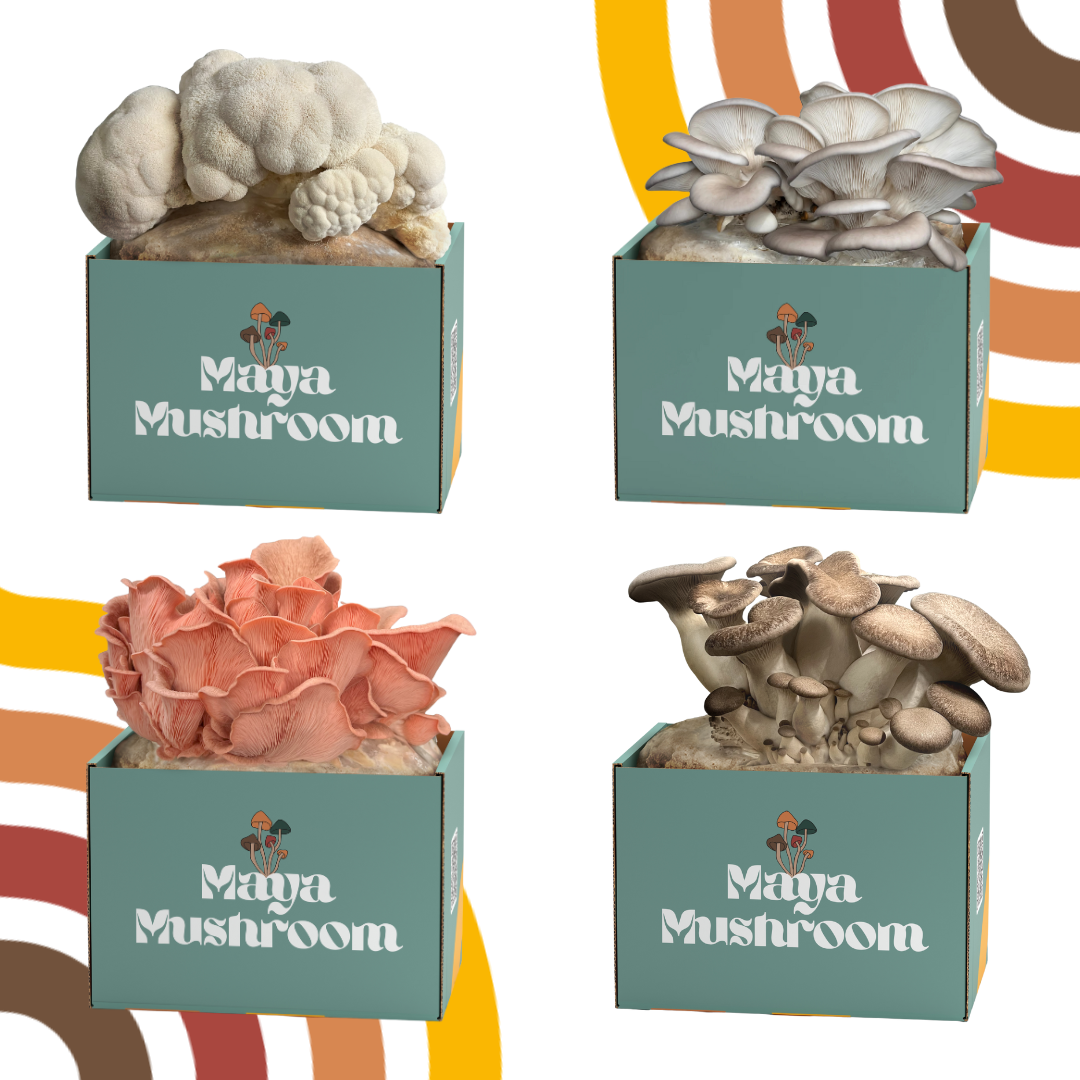The Role of Mushrooms in Gut Health and Microbiome Balance

Mushrooms aren’t just dinner. They are gut superheroes. Packed with bioactive fibers, polysaccharides, and unique compounds, they actively nourish your microbiome, support digestion, and strengthen gut health. When grown fresh in a Maya Mushroom Shroombag, all their power is preserved for maximum impact.
Key Takeaways
-
Prebiotic fibers feed your beneficial gut bacteria
-
Beta-glucans boost immune cells and calm gut inflammation
-
Polysaccharides get fermented into short-chain fatty acids (SCFAs)
-
SCFAs like butyrate strengthen your gut lining and reduce permeability
-
Lion’s Mane, Pink Oyster, Blue Oyster, and Black King Oyster each bring their own gut-supportive superpowers
Lion’s Mane: Gut Lining and Neural Support
-
Contains hericenones and erinacines that influence gut-brain communication
-
Prebiotic fibers feed Bifidobacteria and Lactobacilli, boosting microbial balance
-
Supports intestinal barrier integrity, keeping inflammation from leaky gut in check

Pink Oyster: Microbiome Diversity
-
Rich in soluble fiber and beta-glucans, fueling SCFA-producing bacteria
-
Increases microbial diversity, linked to better digestion, nutrient absorption, and immune function
-
Fiber fermentation creates butyrate, propionate, and acetate, feeding gut cells and calming inflammation
Blue Oyster: Anti-Inflammatory and Fiber-Rich
-
Blue-grey caps loaded with polysaccharides and chitin resist digestion until they reach the colon
-
Fermentation produces SCFAs that reduce inflammation and support gut lining
-
Helps maintain a balanced microbiome, keeping opportunistic bacteria in check
Black King Oyster: Fiber Concentration and Gut Strength
-
Thick stems full of structural polysaccharides that feed beneficial bacteria
-
Boosts butyrate production, fueling gut epithelial cells
-
Supports microbiome resilience after antibiotics or digestive stress
How Mushrooms Feed Your Microbiome
-
Non-digestible polysaccharides bypass your stomach and small intestine
-
Reach the colon intact and are fermented by gut microbes
-
Fermentation creates SCFAs, lowers pH, and keeps harmful bacteria in check
-
Strengthens the gut barrier and supports systemic immune health

Consumption Tips for Gut Health
-
Eat mushrooms cooked to break down chitin for increased bioavailability
-
Pair with fermented foods for microbiome synergy
-
Include fresh Shroombag mushrooms regularly in meals
-
Monitor freshness: white, dense Lion’s Mane; vibrant Oysters; thick Black King Oyster stems
Frequently Asked Questions
Q: Do all mushrooms support the microbiome equally?
A: No. Each species targets different bacteria. Lion’s Mane is for gut lining and gut-brain signaling, Oysters boost microbial diversity, and Black King Oyster provides concentrated fermentable fibers.
Q: Are fresh Shroombag mushrooms better than dried or store-bought?
A: Yes. Fresh mushrooms retain bioactive compounds that degrade over time or during processing. Home-grown Shroombags give your microbiome the best fuel possible.
Q: How quickly will gut benefits show?
A: Regular inclusion over weeks improves microbial diversity, increases SCFA production, and strengthens your gut lining. Consistency is key
Why It Matters
Your gut health shapes digestion, immune response, mood, and nutrient absorption. Eating fresh Shroombag mushrooms delivers bioactive fibers and polysaccharides straight to your microbiome, supporting long-term gut balance and overall wellness


